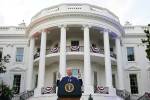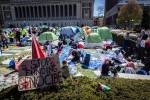Would Americans do the same?
First, observers noted the singular lack of looting in the aftermath of the earthquake and tsunami that struck northeast Honshu, Japan, on March 11. Now comes word that hundreds of dented metal safes and strongboxes, swept out of homes and businesses by last month’s tsunami, are washing up along the region’s battered coast, and the cleanup workers who find them are, well … turning them in.
“At first we put all the safes in the station,” says Noriyoshi Goto, head of the Ofunato Police Department’s financial affairs department. “But then there were so many that we had to move them” into the department’s parking garage, where they sit in piles, waiting to be claimed by any surviving owners.
Many Japanese — especially the elderly — distrust banks and keep sums of cash hidden at home, where it’s referred to as “tansu yokin” — “wardrobe savings.”
By law, items that go unclaimed after three months belong to the finder.
The Japanese are a people who value order and property rights. The obvious question: If such a disaster befell this country, would Americans be going to the trouble to lug safes full of cash and valuables down to the police station to turn them in?
We’d like to believe so. A refreshing number of lost wallets and the like still are turned in, contents intact. Since the police can’t be everywhere, we depend on the honesty and good will of our neighbors more than we may realize.
Answers to the question may vary, however, depending on whether our experience has been among families raised in the rural American heartland, where neighbors still watch out for one another — or a new and very different urban culture, whose residents have been encouraged to believe, by politicians and others, that they’re “entitled” to the proceeds of the hard work of others.
Americans used to watch out for one another, and pull together. For the most part, we still do. But to the extent that we find ourselves less able to answer this question with confidence, some portion of our nation may be suffering pathologies that still need to be understood … and reversed.


















